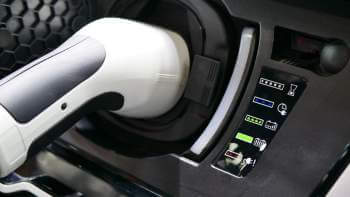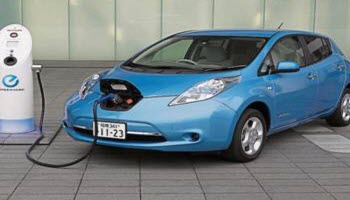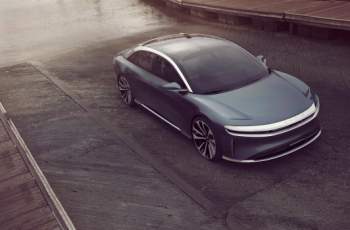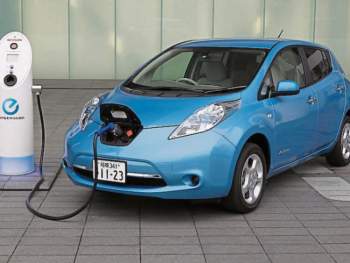Tesla, have you ever heard of him? Nikola Tesla, the inventor who brought us the alternating current (AC), wireless lighting and of course the Tesla coil. He also happens to be the namesake to a much more recent re-invention– Tesla electric cars. They’ve taken a century-old idea of the electric automobile and managed to turn them into forward-looking albeit expensive modern marvels. What once was nothing but an environmentalist’s pipe dream is now a reality for both the wealthy and now the middle class with the Model 3. Through time, Tesla hopes to make electric cars affordable to the entire market thus curbing car emissions and pollution. Or so they say. In the last few years, we’ve seen great strides for electric cars and arguments against those same cars. So, are they really going to save our burning planet?
Emissions
I was having a conversation with a friend about electric vehicles (EVs) and he brought up a statistic about electric cars being worse for emissions, not better. The emissions from making an EV is much higher because the batteries required for these cars are large and full of chemicals. Turns out, he was right. The Union of Concerned Scientists (I just learned that was a real thing) did a study which showed that in fact a mid-size EV with an 84-mile range resulted in 15% more emissions from production and a larger car with a 250-mile range (a Tesla) was as much as 68% higher. So then, are EVs worse for the environment than gas-powered vehicles? Still no.
What this logical fallacy fails to account for is the total emission for the life of the vehicle. The same UCS study then goes to look at the total emissions in the average lifetime of the car. Within months all versions of the EV made up for their emissions by running on cleaner and cheaper electricity. In a state like Vermont where non-renewable energy accounts for only 1.2% of electric production, these cars would make a come back in as low as two months. Even in West Virginia, where about 95% of electricity comes from coal, EVs still were cleaner than standard combustion engines within two years.
Market Permeation
So okay, they’re cleaner and better for emissions, great news! So what about the fact that there are still not that many EVs on the road. If there is only a small percentage of vehicles electrically powered, then does it really make a big enough difference? Well, many climate scientists argue that even the smallest change matters. Even so, the market of the EV is growing and is projected to continue.
Currently, the EV represents only about 1.8% of all vehicles in the US. While this seems small, remember that just a few years ago, EVs weren’t even a full percent of all US vehicles. In 2018 EV sales were up by 81% and as of 2019, there are more than 1.2 million EVs on the road. A large factor in this bump is due to the availability of long-range EVs with an affordable price tag. Yes, I’m talking about the Model 3, the Chevy Bolt, and the Nissan Leaf, all with an MSRP in the $30,000 range and three of the top EVs by units sold. Clearly, there aren’t a whole lot of electric cars on the road right now but the long-range affordable EV hasn’t been available for more than a few years. And now with more manufacturers such as VW and Ford coming into the electric vehicle field, we’ll see even more options.

—



Something to consider. It takes approximately 8 hrs to fully recharge an electric car to go approx. 250 miles. It takes approximately 5 min to fill up a conventional car to go 600 miles. Just saying……
Good point. Range is also the problem that doesn’t seem to figure highly in any list of disadvantages. I drive for a living in the UK and my local council’s taxi licensing department seem to have a thing brewing about EV’s, ostensibly for environmental reasons, sending out surveys to their licensed drivers. However, in my opinion, manufacturers need a major battery/charging break-through before they are REALLY viable for this trade. Take, for instance, a trip to Heathrow airport from my location – a round trip of about 140 miles. That takes an awfully big chunk out of any EV’s battery capacity and the situation may be worse if the vehicle has already been used for a lot of local trips before the airport run pops up on our dispatch system. Mileage, surprisingly, soon mounts up. If an EV is offered an airport job, the driver may well have to turn it down if he hasn’t the capacity to pull it off. Likewise, we do have other fairly long trips to cater for (probably my longest was from Maidstone to Liverpool) and I doubt whether ANY electric car would be up to the job on one charge. Someone I know took their Nissan Leaf EV from Wales to Suffolk and the planning involved to make sure charging points were available was a nightmare, the trip also taking around three times longer than with a conventional car. I would say an EV for running around locally is probably fine but longer distances are still a no-no, despite all the hype!
We have to drive from an hour and half to over two hours just to reach a decent medical facility, an electric car to me is nothing more than a glorified golf cart. Probably will not see one in my garage for some time.
What about electric vehicles in the cold Winter. When stuck in traffic does not that drain the battery even more since heating is from the battery? I believe a hybrid is the better solution, Mindblower!